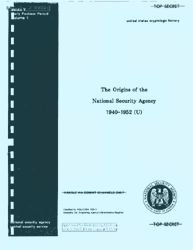Early Jewish texts
From very early on, Jewish writers understood at least their part of the Jewish community to be ‘‘holy.’’ Yet, they often used the term to differentiate among other Jewish groups claiming descent from the ancient Israelites. In the fourth century bc, for instance, Ezra called the returning Judeans a ‘‘holy seed’’ in order to distinguish them from those Judeans and northern Israelites who had remained in the land of Israel during the Babylonian exile. Only those who had experienced exile could claim to be truly holy. The author of the Book of Jubilees (second century bc) again differentiated between ‘‘good’’ and holy Israelites (those who marry other Israelites) and ‘‘bad’’ Israelites (those who marry outside the Israelite community). Similarly, the Yahad (the community that, until its destruction, lived at the Dead Sea) claimed holiness exclusively for itself and for anyone who followed their particular interpretation of Torah law. Although their emphases vary, all three groups maintained that a holy Israel continued to exist despite the failings of certain other descendants of ancient Israel.
Rabbinic texts
The early rabbis also created boundaries between themselves and others through the rhetoric of holiness. According to the Mishnah (Yev. 11. 2), a rabbinic Jew was ‘‘born into holiness.’’ Nevertheless, the rabbis generally created more porous boundaries than their predecessors, allowing those born ‘‘out of holiness’’ to convert and to gain equal access to holiness. Moreover, in this rabbinic text, those ‘‘not born in holiness’’ (qeddushah) referred primarily to non-Jews, not nonconformist Jews. We can follow this line of thought further in the following midrash from Midrash Tehillim which describes Israel as a holy ‘‘item’’ of God ( qodesh visrael l’adonai): ‘‘Oy to those who count heads... There is no head but Israel, as it says, ‘when you take a census [head count of the people Israel]’ [Exod. 30: 12], and there is no holy-one but Israel, as it says, ‘Israel is a holy-item to God’ [Jer. 2: 3]’’ (Midrash Tehillim = Shoher Tov 104. 1, ed. Buber, 439; my translation). Here, Israel is both the head (of all the other nations) and special - holy to God. The rabbinic authors interpret the census mentioned in Exodus 30 as a description of what Israel is rather than of what Israel needs to do, and they see it as parallel to Jeremiah’s statement in 2: 3, ‘‘Israel is a holy-item of God.’’ Israel is the head; hence, Israel is holy.
Despite the matter-of-factness of this citation, the same declaration of Israel’s holiness is often embedded in a polemical statement about the permanent nature of that status - namely, despite Israel’s sins, God did not take away their holiness. For instance, Numbers Rabbah 2. 15 compares God’s indulgence of a sinful Israel to a king with a slovenly wife. Focusing on the same Jeremiah text (Israel is a holy-item), the rabbis extrapolate:
This [verse] may be illustrated by another parable. A king took a wife and used to say of her, ‘‘There is none more beautiful, none more excellent, none more steady than she!’’ Her servant once came into the house and saw her looking disreputable, the house untidy, the beds not made. The servant said to her: ‘‘O that you could but hear how your husband praises you in public! The praise is not at all justified by this behaviour!’’ Then the servant thought to himself, ‘‘If he lavishes such praise on her when she is disreputable, how much more were she at her best!’’ So it was with the generation of Jeremiah. They sinned, yet He said to them, ‘‘I remember the devotion of your youth, etcetera’’ [Jer. 2:2]. Jeremiah said to them, ‘‘O that you would but hear what He says concerning you: ‘Go and cry in the ears of Jerusalem... I remember the devotion of your youth... Israel is a holy-item of God, etcetera.’ ’’ He argued: If He shows them such love when they sin, how much more when they do His bidding. (Numbers Rabbah 2. 15, tr. Judah
J. Slotki in Freedman and Simon 1983, v: 49-50)
In this excerpt from a long winding set of midrashim purportedly commenting on Numbers 2: 32, the rabbis ruminate over Israel’s relationship with God as expressed through the prophets, particularly Jeremiah. Wondering why God did not carry out his various threats to replace a rebellious Israel with another nation, they conclude that God is fundamentally unwilling or unable to do so. His consecration of Israel (Israel is a holy-item) cannot be undone. Even as Israel repeatedly sins, God repeatedly shows compassion and remembers Israel’s ‘‘youth’’ (promises of good behavior and devotion) and forgives them. Because of God’s undying love for, and commitment to, Israel, God continues to hope that Israel will be well behaved in the future, somewhat in the manner of the king who persists in praising his bedraggled and lazy wife in the hope that she will reform her behavior. The sentiment encourages the rabbis to believe that they too will find favor, prosperity, and a good life in the sight of God, while at the same time it undercuts Christian criticism - such as Justin’s and Aphrahat’s above - that Israel’s rebelliousness and sinfulness eventually lead to God’s rejecting of them in favor of the ‘‘peoples’’ who follow Jesus. Whether intentionally polemical or not, both Jewish and Christian writers depend on various biblically based notions of holiness or chosenness, in order to define, defend, and construct their community boundaries. In so doing, they also endow their individualized religious practices, faith, and the very existence of their distinct yet related communities with a stronger sense of purpose.




 World History
World History









